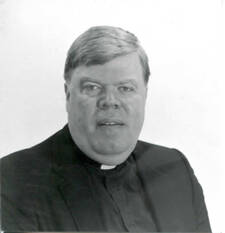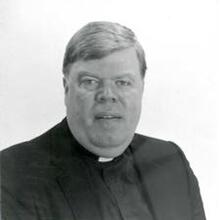The recent Synod on the Family had its surface controversies: the admission of the divorced and remarried to the sacraments and the pastoral care of homosexuals. It also had its background theoretical controversies. The Vatican’s Humanum conference in November probed one of them: the complementarity of the sexes. Another controversy concerns the value of natural-law ethics. An ancient mainstay of Catholic moral argument, natural law suddenly appears consigned to ecclesiastical limbo.
The documentary history of the extraordinary synod tells the tale of natural law’s eclipse. The 2013 Vatican questionnaire preceding the synod asked, “What place does the idea of the natural law have in the cultural areas of society: in institutions, education, academic circles and among the people at large?”
Early in 2014, the German bishops, like many other national episcopates, replied negatively: “Very few people are familiar with the term ‘natural law.’ It has virtually no role to play at the institutional and educational level or in everyday culture.” Preparing the synod debate, the working document (instrumentum laboris) issued by the Vatican in spring 2014 evinces a similar skepticism: “The concept of natural law today turns out to be, in different cultural contexts, highly problematic, if not completely incomprehensible.” When it survives at all, the appeal to “nature” is distorted into an appeal to personal preference (my nature), to cultural prejudice (what the majority thinks) or to biology (what animals do). Given this impoverished concept of natural law, the working document can only “request that more emphasis be placed on the role of the word of God as a privileged instrument in the conception of married life and the family, and recommend greater reference to the Bible, its language and its narratives.” This amounts to a tacit replacement of natural-law ethics by a moral argumentation based uniquely on biblical narrative. In the synod’s closing report (relatio post disceptationem), the reference to natural law has disappeared.
The problems concerning natural law detected by the synod are real enough. The very term has become confusing. In a recent ethics examination, one student defined natural law as the law of gravity. Another identified it as evolution’s random selection. A popular textbook claims that natural-law ethics condemns anything artificial. According to the author, natural law considers Diet Pepsi immoral. (The status of un-diet Pepsi remains unclear.) Clearly, such distorted concepts are far from an accurate grasp of natural law, which resides in human nature and manifests itself in moral inclinations to protect the basic goods of human nature, essential to the quest for authentic happiness.
Despite its confused semantics, natural-law ethics is abandoned at the church’s peril. The proposed substitutes are problematic. Recasting natural-law arguments in terms of human rights cannot capture natural law’s teleological argument as to why an action is right or wrong in terms of its end. In an age of subjectivism, rights themselves easily become subsets of self-indulgence.
The effort to substitute biblical narrative for natural-law principles suffers a similar limitation. Moral argument based uniquely on the sources of revelation easily becomes a sectarian ghetto. Only those who share the church’s theological presuppositions could accept it. Genocide is wrong not because majority public opinion or Western democracy condemns it. It is not only because the Bible or the church rejects it. It has something to do with human nature, human dignity and the basic human good of life itself. It springs from the nagging impulse that we should not treat human beings this way just because they are human beings.
The current impasse in the church over natural law is paradoxical. Although we have become agnostic over the value of natural law, we incessantly use natural-law arguments in our moral discourse. Pope Francis’ opening speech to the recent Humanum conference is illustrative. He makes no explicit reference to natural law but defends “the union of man and woman in marriage as a unique, natural, fundamental and beautiful good for persons, communities, and whole societies.” Despite its cultural variations, human nature endures. The church funeral for natural law is premature.








